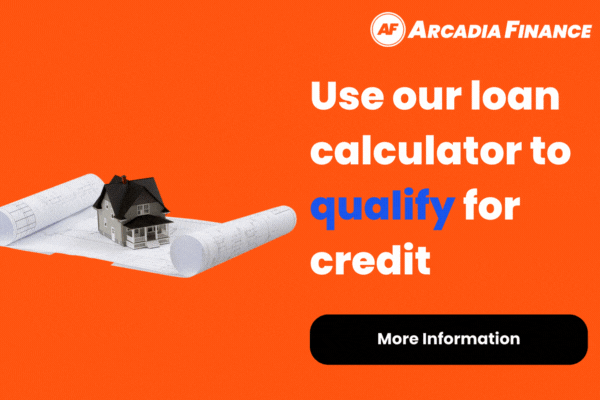
Finding yourself falling behind on your credit card payments? Managing multiple loans and bills on different credit accounts can be challenging, not to mention difficult to track and maintain. From additional fees, interest rates, and payment plans. It can be hard to manage your obligations to pay all your accounts. The best way to get ahead is with our simple debt consolidation loans calculator, where you can easily look into your loan’s projected long-term cost and monthly payments.
Key Takeaways
- Simplified Repayments: Consolidating multiple debts into a single loan allows for easier management of your finances by reducing the number of accounts and payments to track, while also lowering overall monthly repayment amounts.
- Helpful Loan Calculator: The Debt Consolidation Loan Calculator provides a detailed estimate of your future repayments and total loan cost, making it easier to assess whether a consolidation loan will improve your financial position.
- Avoid Common Mistakes: Continuing to use credit cards, failing to budget properly, or taking on new debt while trying to repay existing loans can lead to deeper financial trouble—seeking professional guidance such as debt counselling can provide structured support.
Loan amount R100 - R250,000. Repayment terms can range from 3 - 72 months. Minimum APR is 5% and maximum APR is 60%.
Your email address seems invalid. Write the email again or use some other email address.
How Does Debt Consolidation Work in South Africa?
Below is an explanation of how the debt consolidation process typically takes place:
1. Review Your Outstanding Debts
Start by drawing up a full and accurate list of all your current debts. Include the total balances owed, the interest rates applied to each, and the monthly instalments due. This will give you a clear picture of your overall financial position and help determine the size of the consolidation loan you may need.
2. Confirm Eligibility Requirements
Check that you meet the specific criteria set by the lender. These usually include having a steady and verifiable income, a credit profile that reflects your ability to handle repayments, and a debt-to-income ratio within an acceptable range.
3. Submit a Loan Application
Contact a reliable financial institution or lender and submit an application for a debt consolidation loan. The amount requested should be enough to cover all the debts you intend to consolidate. Be prepared to provide supporting documents such as payslips, bank statements, and a list of creditors.
4. Use the Funds to Clear Existing Accounts
If your loan is approved, the funds will typically be used to settle your outstanding debts in full. Some lenders may transfer the money directly to your creditors, while others may provide you with the funds to do so yourself.
5. Repay the New Loan
You will now be responsible for making a single monthly repayment to your new lender. It is important to maintain consistent payments throughout the term of the loan to avoid penalties and ensure that you do not fall back into the cycle of managing multiple debts.
About Arcadia Finance
Secure a loan effortlessly with Arcadia Finance. Our platform allows you to complete a free application and receive loan offers from up to 19 lenders. We ensure the trustworthiness and compliance of all our lending partners with the regulations of the National Credit Regulator of South Africa.
Is a Debt Consolidation Loan Right For You?
Left unchecked, your debt can cripple you further into financial hardship. Taking out yet another loan to repay the last loan. Paying one loan with another loan is not ideal. With multiple accounts to pay, you could easily fall into this trap. With several accounts, you would be paying more in fees and interest each month for each of your accounts. You may be better off consolidating your debt into a single loan from the interest rates to late fees and prepayment fees from multiple accounts. The benefit of this is that instead of paying various accounts, you pay one. Additionally, the credit provider who consolidates your debt will pay all your outstanding debts and loans whilst placing them in a singular loan repayment plan over an extended period. This significantly decreases your monthly repayments and reduces all the fees associated with each account.
How Can a Debt Consolidation Loan Calculator Help You?
A Debt Consolidation Loan Calculator can help you by providing a clear estimate of how much you could save by consolidating your debts into a single loan. It calculates your potential monthly repayments based on the total amount of debt, interest rates, and the loan term. This tool can help you compare your current payments with the consolidated loan, allowing you to see if consolidating will reduce your payments, simplify your finances, and make it easier to manage your debt. It can also help you plan an affordable repayment strategy tailored to your budget.

The Benefits of Debt Consolidation
- Consolidating your debt can significantly reduce your monthly loan repayments each month.
- Reduce the time and admin spent when paying multiple accounts.
- Eliminate additional fees associated with each account.
- The option to extend your loan term will significantly reduce the amount to be repaid each month.
- Consolidating your debt will lead to an affordable payment plan within your budget.
Related post: Standard loan calculator
Risks of a Debt Consolidation Loan
While monthly repayments to your credit provider may be very affordable when your debt is consolidated, the pitfall that many South Africans make is seeing their reduced monthly payments as additional money to spend. This can result in taking out other loans and starting back at square one. Additionally, with a debt consolidation loan, the terms are usually longer than a conventional credit loan. The result is finding yourself in debt for longer and taking more risks.
Understanding how a debt consolidation loan can affect your credit score is vital. Our detailed analysis explains the short-term impacts and long-term benefits to your credit rating, helping you plan your financial future with confidence.
Send your application now!

Debt Counselling, Debt Review or a Debt Management Plan
This approach is often considered the safest method for managing overwhelming debt. It is especially well-suited for individuals who are no longer able to meet their monthly credit obligations.
Under debt counselling, also referred to as debt review, your monthly repayment obligations can be significantly reduced—sometimes by as much as 60% or more. In addition, this process provides legal protection from creditors, which can prevent further legal action or asset repossession.
In this case, your debts are not consolidated through a new loan or credit product. Instead, a licensed professional handles the process on your behalf.
A registered debt counsellor will assess your financial situation and negotiate new repayment terms with your creditors. Following this, you make a single monthly payment, which is then distributed to your various credit providers.
This distribution is managed by an approved organisation known as a Payment Distribution Agency (PDA), which ensures that all agreed payments reach your creditors accordingly.
Debt counselling or debt review involves consolidating your existing debts into one structured repayment plan, handled by professionals, without taking on additional credit.
Who Is Debt Consolidation Suitable For?
- Good for those struggling with monthly repayments: If you’re finding it hard to keep up but still have a reasonable credit score, debt consolidation can lower your monthly instalments.
- Provides financial breathing space: Helps manage cash flow, but requires a serious reassessment of your spending habits.
You must ensure that you can consistently meet at least the minimum repayment requirement each month. Ideally, you should aim to repay more than the minimum instalment whenever possible, as this will help you settle your debt more quickly and reduce the overall interest paid.
However, if you are over-indebted—meaning you are struggling or unable to pay both your debts and your regular monthly expenses—you may need to consider debt counselling instead. In this case, a qualified debt counsellor will assess your financial situation, help you create a practical budget, and communicate with your creditors on your behalf. Once all outstanding debts are paid off through this process, you will receive a clearance certificate, confirming that you are no longer under debt review.
Should You Consider Debt Consolidation?
When settling your monthly payments and finding yourself with little money left over or struggling to manage all your accounts timely. Debt consolidation could be the answer. This will save you precious time and cash regarding all the additional fees associated with each account. With the option to extend your loan term, you can significantly reduce your required minimum monthly payments each month. With reduced payments, you will find your monthly payments more manageable. This is a great financial tool to simplify and manage your debt more efficiently.
While assessing your options through our Debt Consolidation Loan Calculator, it’s crucial to understand the importance of a good credit score. Learn “What is a Good Credit Score?” to discover how your credit rating affects loan approvals and interest rates.
Frequent Errors to Avoid When Managing Debt
Successfully managing debt requires avoiding several common errors that can slow or even reverse your progress. Below are some mistakes to be aware of:
- Avoiding the Issue: Delaying or ignoring debt responsibilities will only cause the situation to worsen over time. Confronting the problem directly is a necessary starting point for regaining control of your financial obligations.
- Using Credit Cards to Cover Existing Debts: Paying off debt by relying on credit cards often results in a continuous cycle of borrowing, which leads to even greater debt. Breaking this cycle is essential by looking into more sustainable repayment options.
- Lack of a Clear Budget: Operating without a structured budget makes it difficult to control spending and prioritise debt repayments. Establishing a realistic budget and adhering to it is fundamental for long-term financial improvement.
- Avoiding Professional Support: Managing debt can be complicated, and going through it alone may result in costly missteps. Consulting a qualified debt counsellor or financial advisor can offer expert guidance and personalised strategies that are better suited to your financial situation.
- Accumulating Additional Debt: Adding new debt while already facing financial strain can significantly worsen your position. It is vital to refrain from taking on new credit during this time and focus on managing what is already owed.
Taking a Structured Approach to Debt Management
Effectively managing debt is key to maintaining financial stability and reducing stress. South Africans have access to various debt relief options, including debt consolidation loans, settlement plans, and professional debt counselling services. These tools can help structure repayments and create a clearer path toward financial recovery.
Carefully reviewing all available solutions, seeking assistance where needed, and selecting the most appropriate method based on your individual financial situation and long-term goals is critical. Taking decisive action is the first step in working towards improved financial wellbeing and regaining control over your finances.
Conclusion
Debt consolidation can be a valuable tool for South Africans struggling with multiple debts, offering a way to simplify payments and reduce monthly costs. By combining various debts into a single loan, it minimizes the hassle of managing multiple accounts and associated fees. However, it’s essential to be mindful of the risks, such as extending the debt period and the temptation to incur more debt. Used wisely, debt consolidation can provide a more manageable and budget-friendly path to financial stability.
Frequently Asked Questions
A debt consolidation loan combines multiple debts into a single loan, simplifying payments and often reducing monthly costs by lowering interest rates and eliminating multiple fees.
By consolidating your debts, you typically extend the repayment period, which lowers the monthly payment amount. Additionally, you avoid paying fees and interest on multiple accounts.
Yes, the main risks include extending your debt over a longer period, which can lead to paying more in interest over time, and the temptation to accumulate more debt due to lower monthly payments.
It’s ideal for those struggling to manage multiple debts and payments, but not for everyone. It’s important to assess your financial situation and ensure you won’t accumulate more debt after consolidating.
The calculator helps you estimate the long-term cost and monthly payments of a consolidated loan, allowing you to compare it against your current obligations to determine potential savings.






